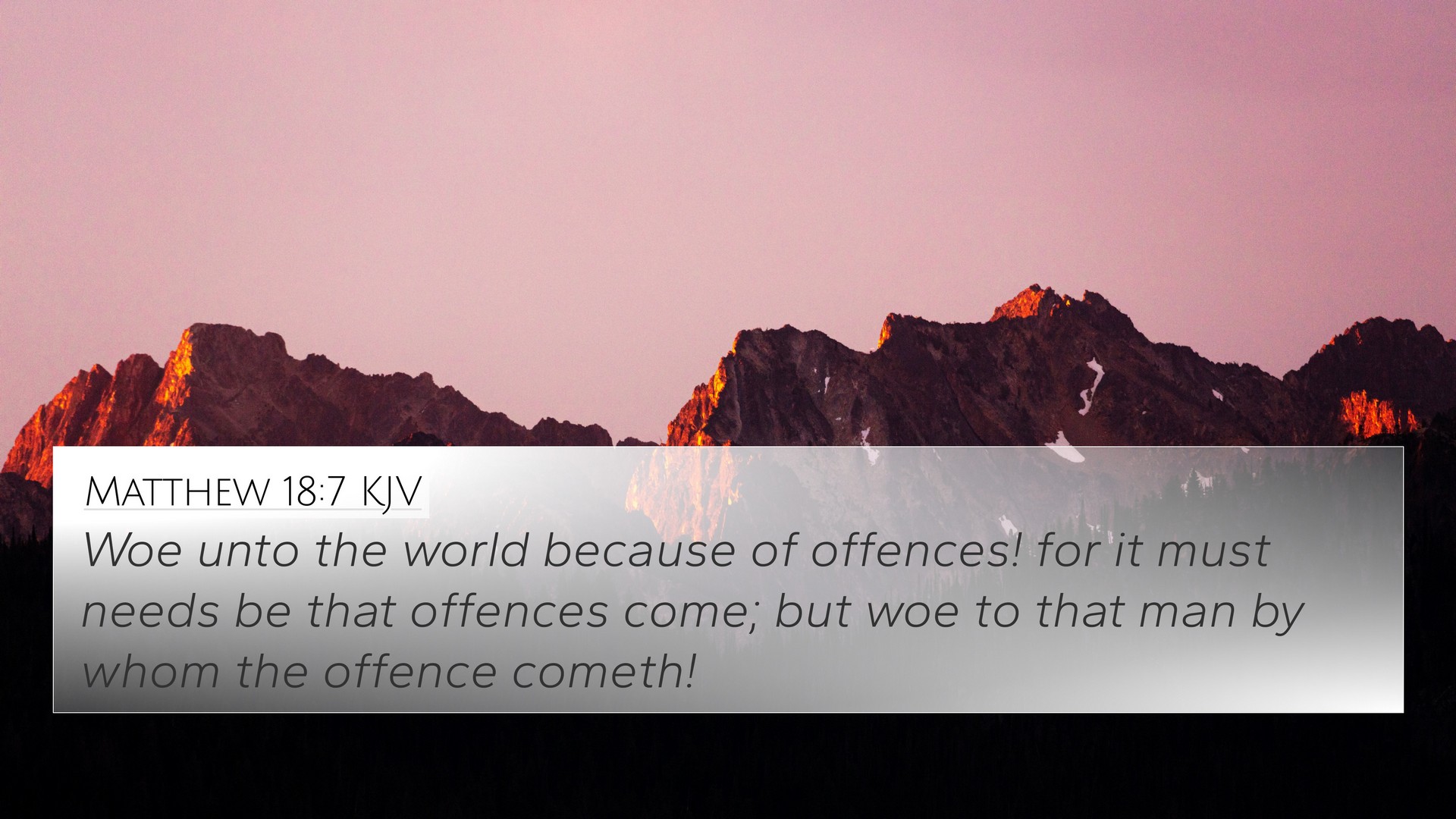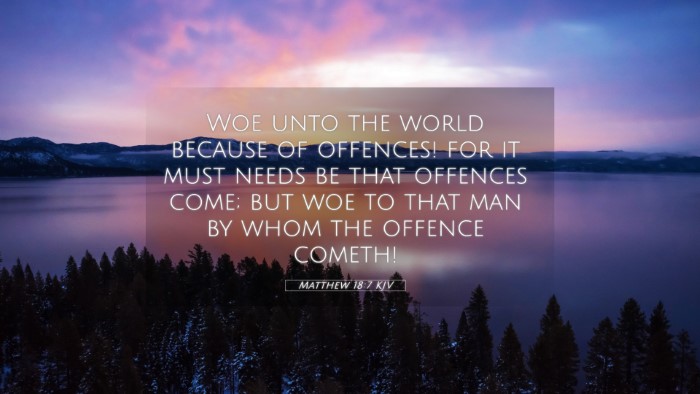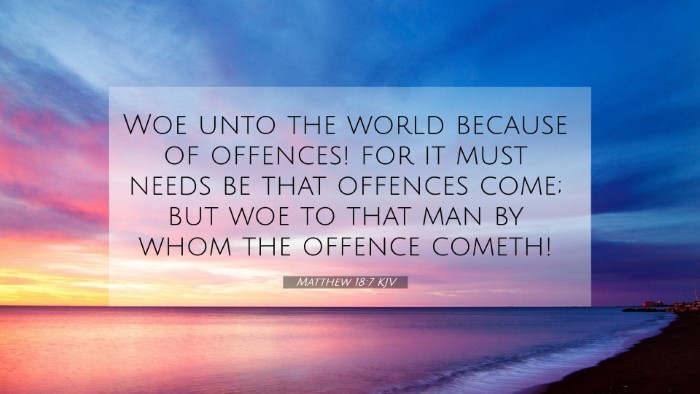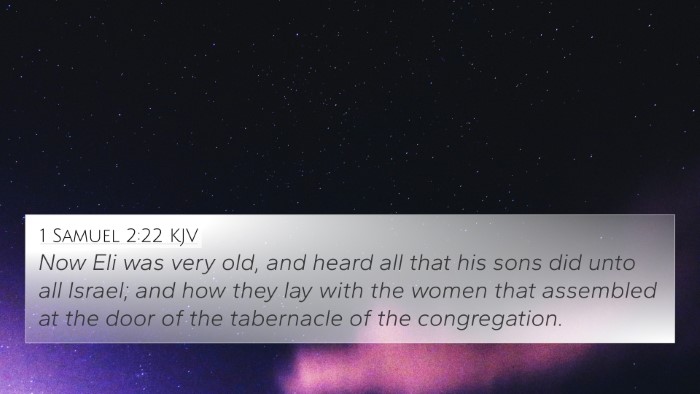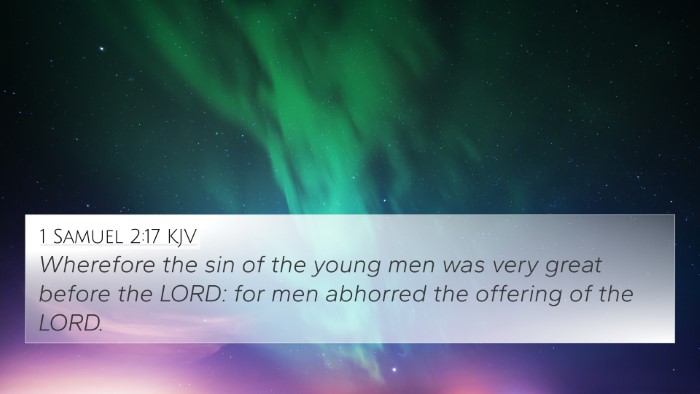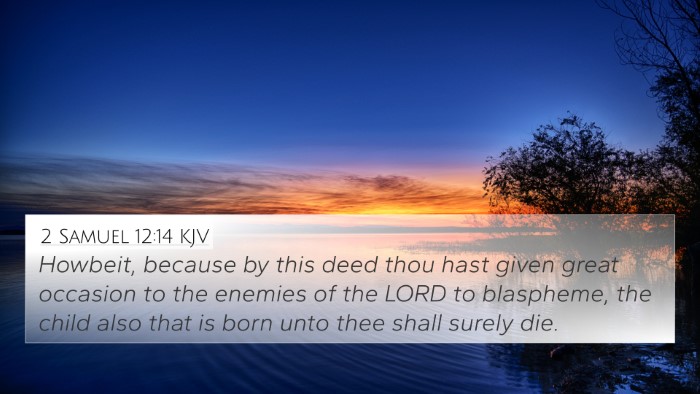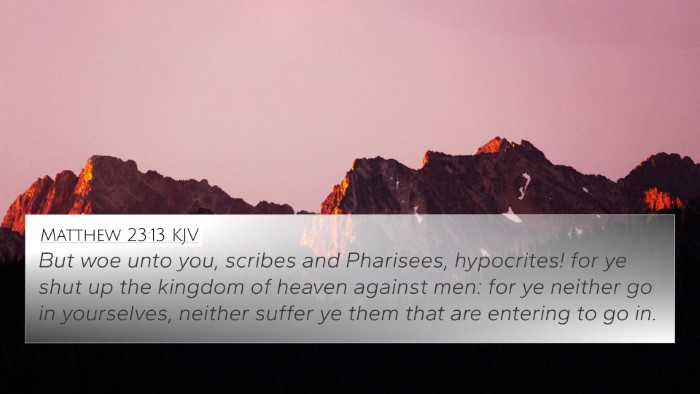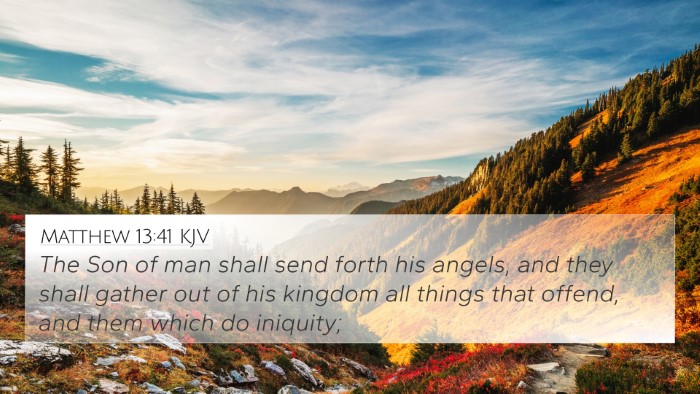Bible Verse Meaning: Matthew 18:7
Matthew 18:7 (KJV): "Woe unto the world because of offences! For it must needs be that offences come; but woe to that man by whom the offence cometh!"
Understanding the Context
This verse appears within a larger discourse where Jesus is teaching His disciples about humility and forgiveness. The context emphasizes the seriousness of causing others to sin and the consequences attached to it.
Summary of Insights from Commentaries
- Matthew Henry: This commentary emphasizes the gravity of causing "offences," interpreting it as a stumbling block that leads others astray. Matthew Henry notes that while these offences will occur, it is severe for the person who causes them, indicating a dire warning against leading others into sin.
- Albert Barnes: Barnes points out that Jesus acknowledges the inevitability of sin in the world, but He stresses that those who contribute to the spiritual harm of others will face severe accountability. He also highlights the moral responsibility individuals have in caring for the spiritual wellbeing of their fellow believers.
- Adam Clarke: Clarke elaborates on the term "offences," explaining it refers to acts that lead to sin or temptation. He underscores the idea of personal accountability and the profound implications of one's actions on the community, reinforcing the need for care in how one lives and influences others.
Thematic Connections
Matthew 18:7 opens avenues for thematic Bible verse connections regarding accountability, sin, and moral conduct.
Bible Verse Cross-References
- Romans 14:13: “Let us not therefore judge one another any more: but judge this rather, that no man put a stumblingblock or an occasion to fall in his brother's way.”
- Luke 17:1: “Then said he unto the disciples, It is impossible but that offences will come: but woe unto him, through whom they come!”
- James 3:1: “My brethren, be not many masters, knowing that we shall receive the greater condemnation.”
- 1 Corinthians 8:9: “But take heed lest by any means this liberty of yours become a stumblingblock to them that are weak.”
- Matthew 5:29-30: “And if thy right eye offend thee, pluck it out, and cast it from thee... and if thy right hand offend thee, cut it off, and cast it from thee.”
- Galatians 6:1: “Brethren, if a man be overtaken in a fault, ye which are spiritual, restore such an one in the spirit of meekness...”
- Hebrews 10:31: “It is a fearful thing to fall into the hands of the living God.”
Implications of the Verse
This verse serves as a caution against the dangers of leading others into sin and reminds believers of their responsibility towards one another. The term "woe" indicates a deep concern for the consequences of sin, and it calls for introspection about one's actions and teachings.
The Importance of Spiritual Care
Understanding the interconnectedness of Bible verses, particularly in Matthew 18:7, showcases the necessity for vigilance in our influence over others. Each Christian is part of a larger body, and the impact of individual actions resonates throughout the community.
Tools for Bible Cross-Referencing
To fully grasp the connections among Biblical texts, utilizing tools for Bible cross-referencing can enhance one’s study:
- Bible concordance
- Bible cross-reference guide
- Cross-reference Bible study resources
- Bible chain references
Comparative Bible Verse Analysis
Through comparative analysis, one can observe how various scriptures echo themes present in Matthew 18:7. By identifying commonalities between verses, believers can gain a more comprehensive understanding of scriptural principles related to responsibility, sin, and community.
Practical Application
Incorporating the lessons from Matthew 18:7 into daily life involves:
- Practicing self-awareness about how one’s actions may affect others.
- Engaging in restorative practices when mistakes are made.
- Encouraging fellow believers to pursue a life that glorifies God.
Conclusion
Matthew 18:7 serves as a poignant reminder of the gravity of leading others into sin while underscoring the importance of mutual support within the Christian community. By analyzing cross-references and understanding the commentary provided by biblical scholars, believers can deepen their understanding of personal accountability and the collective journey of faith.
